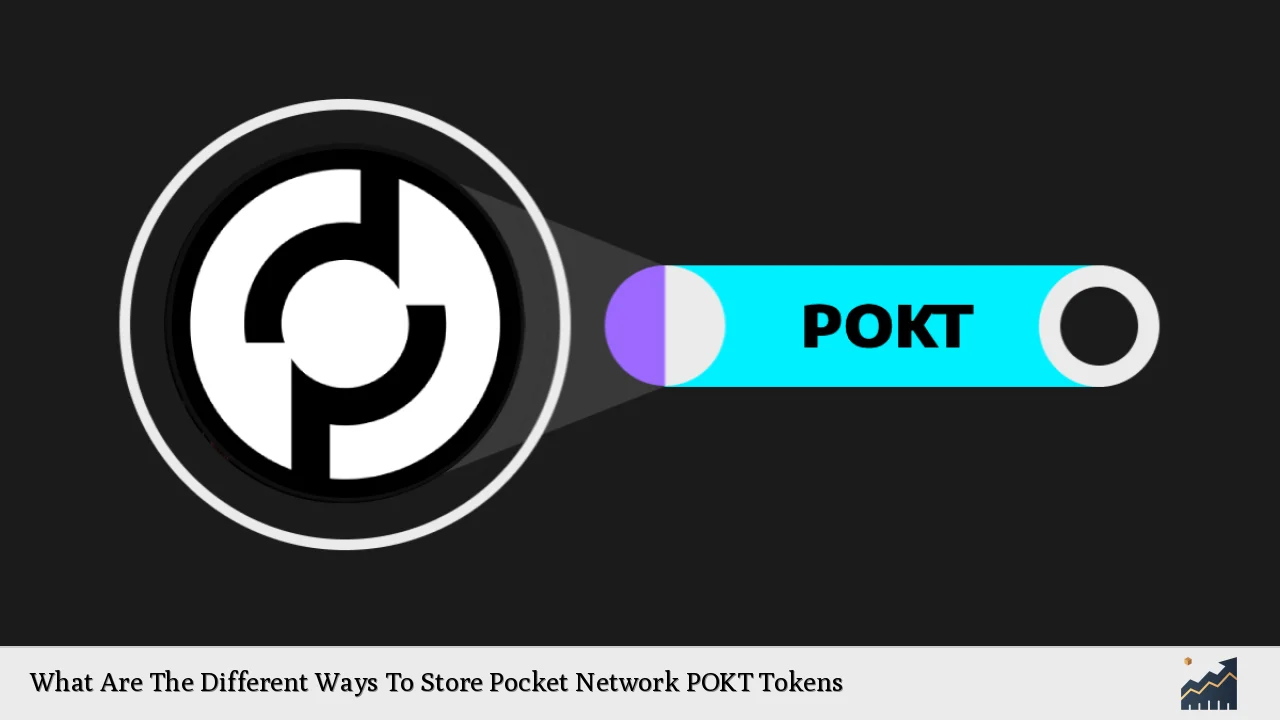Pocket Network (POKT) is a decentralized infrastructure protocol that allows developers to access blockchain services through a network of nodes. As the use of POKT tokens grows, understanding the various ways to store these tokens becomes crucial for individual investors and finance professionals. This article explores the best practices for storing POKT tokens, analyzing market trends, implementation strategies, risk considerations, regulatory aspects, and future outlook.
| Key Concept | Description/Impact |
|---|---|
| Hot Wallets | These are online wallets that allow for quick access and trading of POKT tokens. They are convenient but more vulnerable to hacks. |
| Cold Wallets | Offline storage options like hardware wallets provide enhanced security against online threats, making them ideal for long-term holding. |
| Staking Wallets | Using wallets that support staking can generate passive income through rewards while securely holding POKT tokens. |
| Exchanges | Storing POKT on exchanges allows for easy trading but carries risks such as exchange hacks or insolvency. |
| Multi-Signature Wallets | These wallets require multiple keys to authorize a transaction, enhancing security for significant holdings of POKT tokens. |
Market Analysis and Trends
The cryptocurrency market has seen significant fluctuations in the value of POKT tokens. As of December 2024, the price of POKT is approximately $0.0681, with a 24-hour trading volume of around $3.59 million. The market capitalization stands at about $104.82 million, indicating a growing interest in the Pocket Network ecosystem.
Recent trends show an increase in staking activities within the Pocket Network, with over 24,000 full nodes now operational. This surge has been fueled by a 14x increase in protocol revenue over recent months, demonstrating the network’s resilience and potential for future growth.
Investors should be aware of the volatility inherent in cryptocurrency markets, which can lead to rapid price changes. The historical price range for POKT has seen lows around $0.0259 and highs near $3.1, reflecting both its potential and risks.
Implementation Strategies
When deciding how to store POKT tokens, investors should consider their investment strategy and risk tolerance:
- Hot Wallets: Ideal for active traders who need quick access to their funds. Popular options include Trust Wallet and MetaMask. However, users should be cautious about security practices to mitigate risks associated with online storage.
- Cold Wallets: Hardware wallets like Ledger or Trezor are recommended for long-term holders looking to secure their investments against online threats. These devices store private keys offline.
- Staking: Investors can stake their POKT tokens using wallets that support this feature (e.g., the official Pocket Wallet). Staking not only secures tokens but also earns rewards, enhancing overall investment returns.
- Multi-Signature Wallets: For those holding significant amounts of POKT, multi-signature wallets offer an additional layer of security by requiring multiple approvals for transactions.
- Exchanges: While convenient for trading, storing POKT on exchanges (like Binance or KuCoin) should be approached with caution due to potential security breaches.
Risk Considerations
Investing in cryptocurrencies like POKT carries inherent risks:
- Market Volatility: Prices can fluctuate dramatically within short periods, affecting investment value.
- Security Risks: Hot wallets are susceptible to hacks; thus, using cold storage is advisable for long-term holdings.
- Regulatory Risks: Changes in regulations can impact the usability and value of cryptocurrencies. Investors must stay informed about legal developments affecting cryptocurrency markets.
- Liquidity Risks: Depending on market conditions, selling large amounts of POKT may be challenging without significantly impacting the price.
Regulatory Aspects
The regulatory landscape for cryptocurrencies is evolving rapidly. In many jurisdictions, cryptocurrencies are subject to varying degrees of regulation regarding their use and trading. Investors should be aware of:
- KYC/AML Regulations: Most exchanges require Know Your Customer (KYC) and Anti-Money Laundering (AML) compliance before allowing trading or withdrawals.
- Tax Implications: Cryptocurrency transactions may have tax consequences that vary by jurisdiction; investors should consult tax professionals regarding their obligations.
- Securities Regulations: Depending on how they are classified by regulators, some cryptocurrencies may be subject to securities laws.
Future Outlook
The future of Pocket Network and its POKT token appears promising based on current trends:
- Increased Adoption: As decentralized applications continue to grow in popularity, demand for reliable infrastructure like Pocket Network is expected to rise.
- Technological Advancements: Ongoing improvements in blockchain technology may enhance the efficiency and capabilities of the Pocket Network.
- Market Growth: With a projected increase in user adoption and staking activities, analysts anticipate further growth in both the token’s value and its market presence.
Investors should remain vigilant about market conditions and technological developments while considering their investment strategies.
Frequently Asked Questions About What Are The Different Ways To Store Pocket Network POKT Tokens
- What is a hot wallet?
A hot wallet is an online wallet that provides quick access to your cryptocurrency but is more vulnerable to hacking. - How does staking work?
Staking involves locking up your tokens in a wallet to support network operations while earning rewards over time. - What are cold wallets?
Cold wallets are offline storage solutions like hardware wallets that protect your cryptocurrency from online threats. - Is it safe to store POKT on exchanges?
While it is convenient for trading, storing large amounts of POKT on exchanges carries risks due to potential hacks. - What is a multi-signature wallet?
A multi-signature wallet requires multiple keys or approvals before transactions can be executed, enhancing security. - How can I ensure my cryptocurrency is secure?
Use cold storage solutions for long-term holdings and implement strong security practices like two-factor authentication. - What are the tax implications of holding cryptocurrencies?
Tax obligations vary by jurisdiction; consult with a tax professional regarding your specific situation. - What factors influence the price of POKT?
Price fluctuations can be influenced by market demand, regulatory changes, technological advancements, and overall market sentiment.
This comprehensive overview provides individual investors and finance professionals with essential insights into storing Pocket Network (POKT) tokens effectively while considering market dynamics and risks involved.

